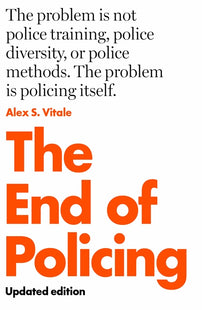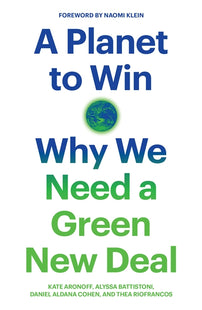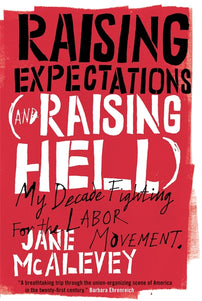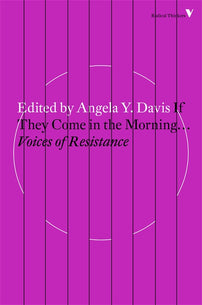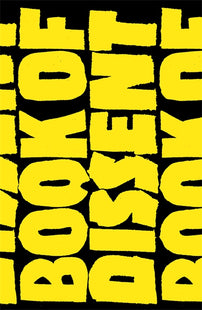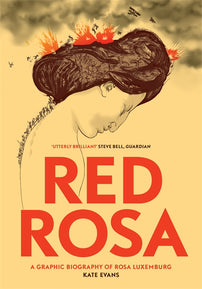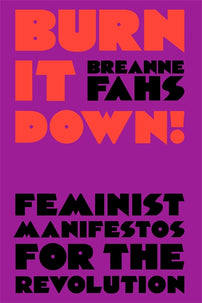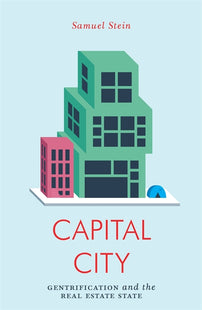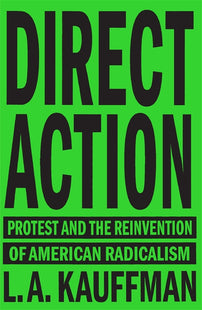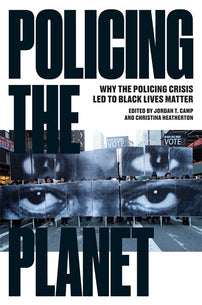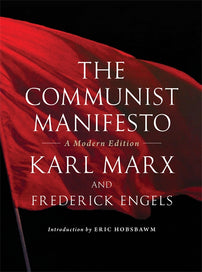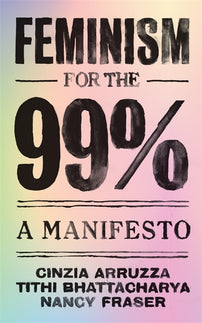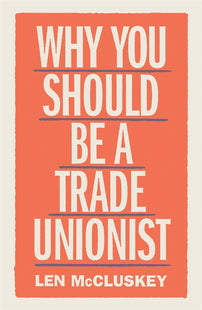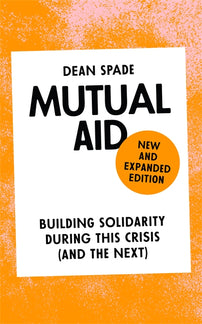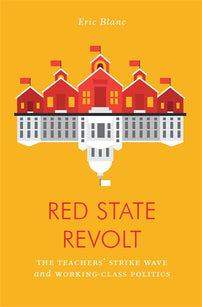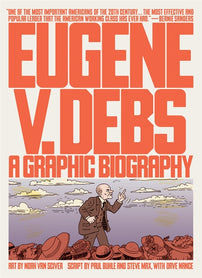20 Books for Budding Activists
Our top 20 books on activism and anti-capitalist resistance, the perfect introduction to left politics.
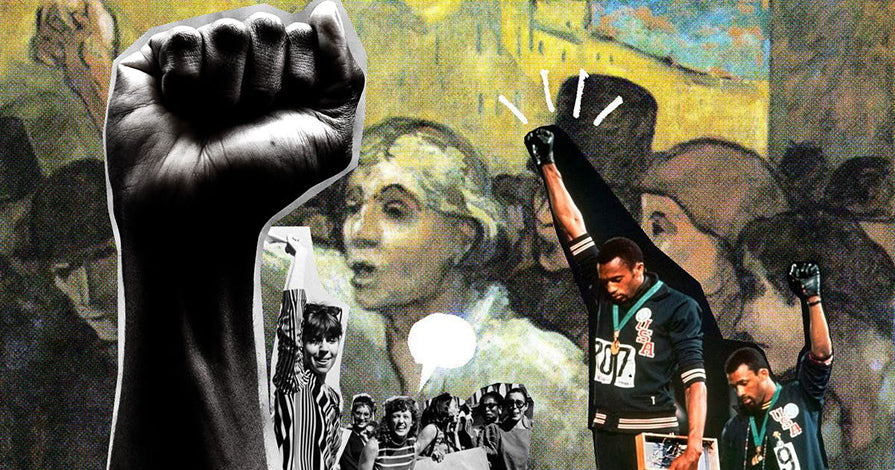
The uprisings against racist police violence have been some of the largest mass protests the world has seen in a generation. Calls to defund the police, to abolish prisons and to tax the rich to fund universal healthcare, education, affordable housing and a Green New Deal are more popular than ever.
This collection of important voices on activism and resistance features Angela Davis, Nick Estes, Jane McAlevey, Dean Spade, Nancy Fraser, the one and only Karl Marx, and more.
We have 40% off ALL our print books and 60% off ALL our ebooks until January 4th, 23:59 EST. See more information here and our end of year highlights as well as Gift Guide. We have lots more reading lists to help navigate our entire catalog of books here!
[book-strip index="1" style="buy"]Nick Estes traces traditions of Indigenous resistance that led to the #NoDAPL movement. Our History Is the Future is at once a work of history, a manifesto, and an intergenerational story of resistance.
[book-strip index="2" style="buy"]Recent years have seen an explosion of protest against police brutality and repression. Among activists, journalists and politicians, the conversation about how to respond and improve policing has focused on accountability, diversity, training, and community relations. Unfortunately, these reforms will not produce results, either alone or in combination. The core of the problem must be addressed: the nature of modern policing itself.
[book-strip index="3" style="buy"]A Planet to Win explores the political potential and concrete first steps of a Green New Deal. It calls for dismantling the fossil fuel industry, building beautiful landscapes of renewable energy, and guaranteeing climate-friendly work, no-carbon housing, and free public transit. And it shows how a Green New Deal in the United States can strengthen climate justice movements worldwide.
[book-strip index="4" style="buy"]Jane McAlevey argues that labor can be revived, but only if the movement acknowledges its mistakes and fully commits to deep organizing, participatory education, militancy, and an approach to workers and their communities that more resembles the campaigns of the 1930s—in short, social movement unionism that involves raising workers’ expectations (while raising hell).
[book-strip index="5" style="buy"]One of America’s most historic political trials is undoubtedly that of Angela Davis. Opening with a letter from James Baldwin to Davis, and including contributions from numerous radicals such as Black Panthers George Jackson, Huey P. Newton, Bobby Seale and Erica Huggins, this book is not only an account of Davis’s incarceration and the struggles surrounding it, but also perhaps the most comprehensive and thorough analysis of the prison system of the United State.
[book-strip index="6" style="buy"]This anthology, global in scope, presents voices of dissent from every era of human history: speeches and pamphlets, poems and songs, plays and manifestos. Every age has its iconoclasts, and yet the greatest among them build on the words and actions of their forerunners. The Verso Book of Dissent should be in the arsenal of every rebel who understands that words and ideas are the ultimate weapons.
[book-strip index="7" style="buy"]“This book is hard to put down and contains a challenge that is impossible to turn away from: We could create a better world—peaceful, egalitarian, even joyful—if we are willing to learn from Red Rosa.” – Barbara Ehrenreich, author of Living with a Wild God
[book-strip index="8" style="buy"]In Revolting Prostitutes, sex workers Juno Mac and Molly Smith bring a fresh perspective to questions that have long been contentious. Speaking from a growing global sex worker rights movement, and situating their argument firmly within wider questions of migration, work, feminism, and resistance to white supremacy, they make clear that anyone committed to working towards justice and freedom should be in support of the sex worker rights movement.
[book-strip index="9" style="buy"]In this landmark collection spanning three centuries and four waves of feminist activism and writing, Burn It Down! is a testament to what is possible when women are driven to the edge. The manifesto—raging and wanting, quarreling and provoking—has always played a central role in feminism, and it’s the angry, brash feminism we need now.
[book-strip index="10" style="buy"]“Samuel Stein’s lucid explanation for how we got to where we’re at shines urgent light on the origins and development of what he incisively calls ‘the Real Estate State.’ Capital Cityplaces gentrification in a structurally extensive and intensive urban geography of dispossession. All who struggle for the right to the city should read this book, and realize afresh how capitalism saving capitalism from capitalism must provoke our political imagination.” – Ruth Wilson Gilmore, author of Golden Gulag
[book-strip index="11" style="buy"]
A longtime movement insider's powerful account of the origins of today's protest movements and what they can achieve now.
Combining firsthand accounts from activists with the research of scholars and reflections from artists, Policing the Planet traces the global spread of the broken-windows policing strategy, first established in New York City under Police Commissioner William Bratton. It’s a doctrine that has vastly broadened police power the world over—to deadly effect.
[book-strip index="13" style="buy"]As Eric Hobsbawm argues in his acute and elegant introduction to this modern edition, in such times The Communist Manifesto emerges as a work of great prescience and power despite being written over a century and a half ago. He highlights Marx and Engels’s enduring insights into the capitalist system: its devastating impact on all aspects of human existence; its susceptibility to enormous convulsions and crises; and its fundamental weakness.
[book-strip index="14" style="buy"]Unaffordable housing, poverty wages, inadequate healthcare, border policing, climate change—these are not what you ordinarily hear feminists talking about. But aren’t they the biggest issues for the vast majority of women around the globe? Taking as its inspiration the new wave of feminist militancy that has erupted globally, this manifesto makes a simple but powerful case: feminism shouldn’t start—or stop—with the drive to have women represented at the top of their professions. It must focus on those at the bottom, and fight for the world they deserve. And that means targeting capitalism. Feminism must be anticapitalist, eco-socialist and antiracist.
[book-strip index="15" style="buy"]In this short and accessible book, Len McCluskey, General Secretary of Unite the Union, presents the case for joining a trade union. Drawing on anecdotes from his own long involvement in unions, he looks at the history of trade unions, what they do and how they give a voice to working people, as democratic organisations.
[book-strip index="16" style="buy"]This book is about mutual aid: why it is so important, what it looks like, and how to do it. It provides a grassroots theory of mutual aid, describes how mutual aid is a crucial part of powerful movements for social justice, and offers concrete tools for organizing, such as how to work in groups, how to foster a collective decision-making process, how to prevent and address conflict, and how to deal with burnout.
[book-strip index="17" style="buy"]A remarkable book on the international operations of racism and the global meaning of Black Power.
[book-strip index="18" style="buy"]Red State Revolt is a compelling analysis of the emergence and development of the historic teachers' strike wave, with an eye to extracting its main strategic lessons for educators, labor organizer, and radicals across the country. A former high school teacher and longtime activist, Eric Blanc embedded himself into the rank-and-file leaderships of the walkouts, telling a story populated with the voices of school workers who are winning the fight for the soul of public education—and redrawing the political map of the country at large.
[book-strip index="19" style="buy"]In a time when activists in Ferguson, Palestine, Baltimore, and Hong Kong immediately connect across vast distances, this book makes clear that new Black radical politics is thoroughly internationalist and redraws the links between Black resistance and anti-capitalism. Featuring the key voices in this new intellectual wave, this collection outlines one of the most vibrant areas of thought today.
[book-strip index="20" style="buy"]Drawing on the words and deeds of black revolutionary theorists, Asad Haider argues that identity politics is not synonymous with anti-racism, but instead amounts to the neutralization of its movements. It marks a retreat from the crucial passage of identity to solidarity, and from individual recognition to the collective struggle against an oppressive social structure.
[book-strip index="21" style="buy"]Dynamic and beloved American radical, labor leader, and socialist Eugene Victor Debs led the Socialist Party to federal and state office across the United States by the 1920s. Imprisoned for speaking out against World War I, Debs ran for president from prison on the Socialist Party ticket, receiving over 1 million votes. Debs’s life is a story of labor battles in industrializing America, of a fighting socialist politics grown directly out of the Midwest heartland, and of a distinctly American vision of socialism.
